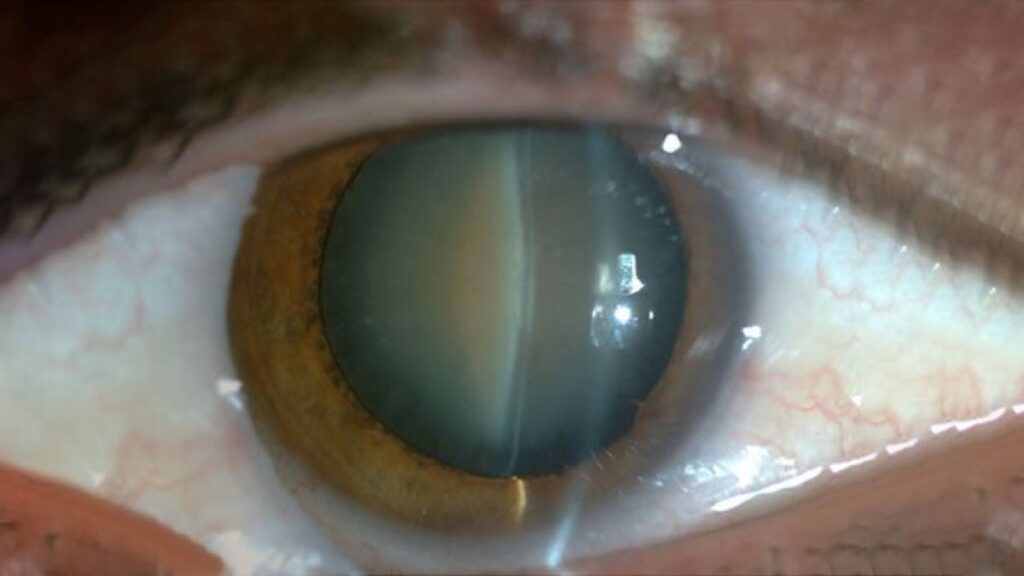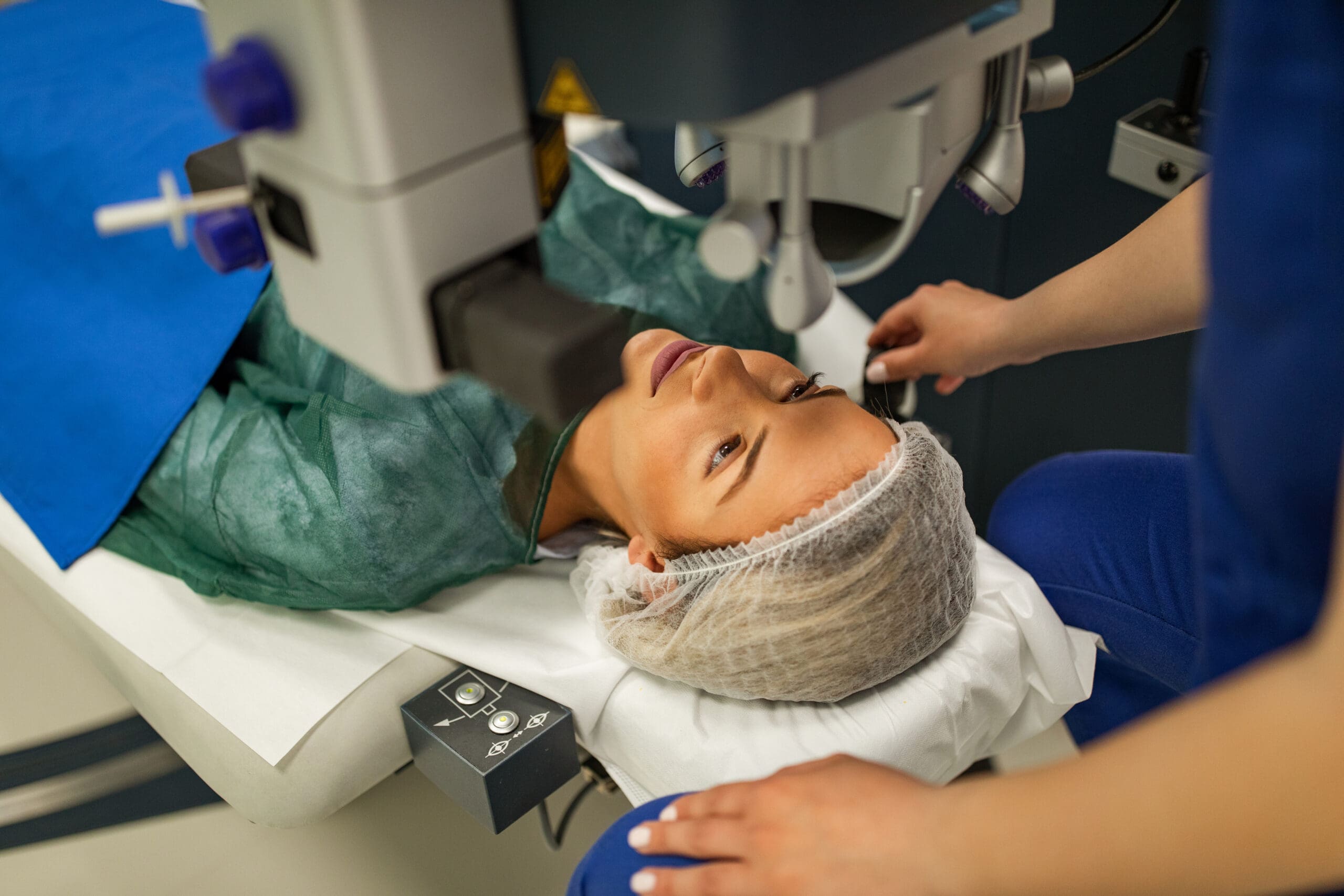Cataracts are a common age-related eye condition that can significantly affect one’s vision and quality of life. Fortunately, with advancements in medical technology, cataract surgery has become a safe and effective solution for restoring clear vision. If you’re wondering whether cataract surgery is right for you, this article will provide a comprehensive understanding of the procedure and its benefits, helping you make an informed decision.
Understanding Cataracts: Causes and Symptoms
To fully comprehend the need for cataract surgery, it’s essential to understand what cataracts are and how they develop. Cataracts occur when the natural lens of the eye becomes cloudy, leading to blurred vision and other visual impairments. The most common cause of cataracts is age, as the proteins in the lens gradually break down and clump together. However, other factors such as genetics, certain medications, and underlying medical conditions can also contribute to cataract formation.
Before undergoing cataract surgery, your ophthalmologist will discuss these risks with you in detail and address any concerns you may have. They will also evaluate your overall health and eye condition to determine the best approach for your surgery, minimizing the chances of complications.
The Science Behind Cataract Formation
When proteins in the lens begin to break down, they form clumps that cloud the lens, preventing light from passing through it. This cloudiness leads to decreased visual acuity and an overall decline in vision quality. Over time, the cataract may grow larger, further obstructing vision and making everyday activities more challenging.

Common Symptoms and Signs of Cataracts
Identifying the symptoms of cataracts is crucial in determining if surgery is necessary. Common signs of cataracts include blurred or hazy vision, increased sensitivity to light, difficulty seeing at night, and the appearance of halos around lights. Additionally, some individuals may experience a yellowing or fading of colors and a need for frequent prescription changes in glasses or contact lenses. If these symptoms significantly impact your daily life and activities, it may be time to consider cataract surgery.
While age is the primary risk factor for cataracts, it’s important to note that genetics can also play a role. If you have a family history of cataracts, you may be more prone to developing them earlier in life. Additionally, certain medications, such as corticosteroids and diuretics, have been associated with an increased risk of cataract formation. If you are taking any of these medications, it’s crucial to discuss the potential risks with your healthcare provider.
Furthermore, underlying medical conditions like diabetes and hypertension can contribute to the development of cataracts. High blood sugar levels in diabetes can cause changes in the lens, leading to cloudiness and cataract formation. Similarly, uncontrolled high blood pressure can affect the blood vessels in the eye, disrupting the flow of nutrients and oxygen to the lens, thereby increasing the risk of cataracts.
It’s worth noting that cataracts can affect both eyes, but they may not develop at the same rate. One eye may experience more significant visual impairment than the other, making it crucial to monitor both eyes for any changes in vision. Regular eye exams with an ophthalmologist or optometrist can help detect cataracts early on and determine the appropriate course of treatment.
The Cataract Surgery: A Detailed Walkthrough
Now that we understand cataracts and their impact on vision, let’s delve into the details of cataract surgery. This outpatient procedure is performed by experienced eye surgeons and typically takes less than an hour to complete. Here’s a step-by-step explanation of what to expect:
Pre-Surgery Preparations
Prior to the surgery, your eye specialist will conduct a thorough examination of your eyes to determine the severity of the cataracts and assess your overall eye health. This ensures that you are a suitable candidate for the procedure. You may also need to undergo various tests, such as measuring the shape and size of your eye, to help determine the appropriate intraocular lens (IOL) for implantation.
During the pre-surgery preparations, your eye specialist will take the time to address any concerns or questions you may have. They understand that undergoing any surgical procedure can be nerve-wracking, and they want to ensure that you feel comfortable and well-informed every step of the way. They will explain the risks and benefits of the surgery, discuss the different types of IOLs available, and help you make an informed decision based on your specific needs and lifestyle.
The Surgery Procedure: What to Expect
On the day of the surgery, you will arrive at the surgical center, where you’ll be prepped and made comfortable. Typically, the procedure is performed under local anesthesia, meaning you will be awake during the surgery but will not feel any pain. The surgeon will create a small incision in your eye, remove the cloudy lens affected by the cataract, and replace it with an artificial IOL. Read more about pain at https://www.health.harvard.edu/topics/pain
During the surgery, the operating room is meticulously set up to ensure a sterile environment. The surgeon and their team follow strict protocols to minimize the risk of infection and ensure the best possible outcome for each patient. Advanced surgical equipment and techniques are used to enhance precision and minimize any potential complications.
The IOL plays a vital role in restoring clear vision as it acts as a permanent replacement for your natural lens. Depending on your preferences and specific needs, different types of IOLs may be used, such as monofocal lenses, multifocal lenses, or toric lenses for astigmatism correction. Your surgeon will discuss these options with you prior to the surgery and help you choose the most suitable IOL for your individual case.
Post-Surgery Care and Recovery
After the surgery, you’ll be closely monitored before being discharged. It’s normal to experience some discomfort or itchiness in the days following the surgery. Your eye doctor will provide detailed instructions on how to care for your eyes during the recovery period, which typically involves using prescribed eye drops, avoiding strenuous activities, and wearing protective eyewear.
During the post-surgery care and recovery phase, it’s important to follow your doctor’s instructions diligently. This will help ensure proper healing and minimize the risk of complications. Your doctor may schedule follow-up appointments to monitor your progress and make any necessary adjustments to your treatment plan.
While everyone’s healing process may vary slightly, most individuals experience a noticeable improvement in their vision within a few days. However, full recovery may take several weeks, during which your eyes will continue to adjust to the implanted IOL. It’s important to be patient and allow your eyes the time they need to heal completely.
Potential Risks and Complications of Cataract Surgery
Like any surgical procedure, cataract surgery carries some potential risks and complications. It’s important to be aware of these possibilities before making your decision. However, it’s essential to note that cataract surgery is considered safe, and complications are relatively rare.
Short-Term Risks and Side Effects
During the initial recovery period, you may experience some temporary side effects, including dry eyes, mild discomfort, sensitivity to light, and mild inflammation. These symptoms are usually manageable and gradually improve as your eyes heal. Click here to find more about inflammation.
Your ophthalmologist will provide you with post-operative care instructions to help alleviate these short-term side effects and promote healing. It’s crucial to follow these guidelines diligently to ensure a smooth recovery and reduce the risk of complications.
Long-Term Complications and How to Manage Them
In rare cases, long-term complications may arise, such as infection, retinal detachment, or posterior capsule opacification (PCO). PCO, also known as “after-cataract,” occurs when the capsule surrounding the IOL becomes cloudy, affecting vision. However, PCO can be easily treated with a laser procedure called YAG capsulotomy, which is simple, safe, and does not require anesthesia.
Your ophthalmologist will schedule regular follow-up appointments after your cataract surgery to monitor your eye health and detect any potential long-term complications early. By staying proactive and attending these appointments, you can ensure that any issues are addressed promptly, maintaining the success of your cataract surgery in the long run.

The Benefits of Cataract Surgery
Despite the potential risks, cataract surgery offers numerous benefits that can significantly improve your overall quality of life.
When considering cataract surgery, it’s important to understand the transformative impact it can have on your daily life. Beyond just improving vision, this procedure can open up a world of possibilities that may have been limited by cataracts. From admiring the intricate details of a painting to watching a loved one’s facial expressions with clarity, the benefits extend far beyond simple eyesight.
Improved Vision and Quality of Life
By removing the cloudy lens and replacing it with an artificial IOL, cataract surgery can dramatically enhance visual acuity. Most patients experience a significant improvement in their ability to see clearly, allowing them to resume their daily activities with ease. Whether it’s reading, driving, or enjoying hobbies, improved vision can have a profound positive impact on a person’s overall well-being.
Moreover, the newfound clarity of vision can lead to a boost in confidence and independence. Tasks that were once challenging due to poor eyesight can now be tackled with ease, empowering individuals to engage more fully in social interactions and pursue new experiences with renewed vigor.
Long-Term Health Benefits
Studies have shown that cataract surgery not only improves vision but can also have positive effects on long-term health. The restoration of clear vision may reduce the risk of falls and injuries, enhance cognitive function, and even contribute to the prevention of certain age-related eye diseases, such as age-related macular degeneration (AMD).
Furthermore, the ripple effects of improved vision can extend to overall physical health. With better eyesight, individuals may be more inclined to engage in physical activities, leading to a healthier lifestyle and improved well-being. The benefits of cataract surgery reach far beyond the operating room, offering a brighter and clearer future for those who undergo this life-changing procedure.
Making the Decision: Is Cataract Surgery Right for You?
Deciding whether to undergo cataract surgery is a personal choice that should be made in consultation with your eye specialist. Many factors need to be considered, such as the impact of cataracts on your daily life, your overall health, and your expectations for the outcome of the surgery.
Factors to Consider Before Opting for Surgery
Before making a decision, it’s essential to assess how much cataracts affect your vision and quality of life. Are you struggling with daily activities? Do cataracts hinder your ability to work or enjoy hobbies? Additionally, your overall health and medical history will play a role in determining if surgery is the right option for you.
Consulting with Your Eye Specialist
Your eye specialist is your best resource for guidance and information regarding cataract surgery. They can assess the severity of your cataracts, provide an accurate prognosis, and discuss potential risks and benefits with you. Together, you can weigh the pros and cons and make an informed decision tailored to your unique circumstances.
In conclusion, cataract surgery is a highly effective procedure that can restore clear vision and improve overall quality of life. With advancements in technology and the expertise of eye surgeons, the risks associated with cataract surgery are minimal. If cataracts significantly impact your vision and daily activities, it may be time to consider cataract surgery as an option to regain your visual clarity and enhance your quality of life.
Read about lasik surgery at: Eye Surgery LASIK


